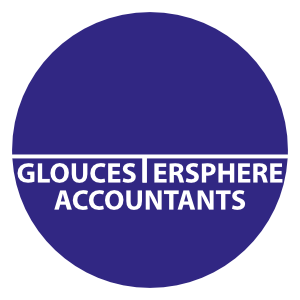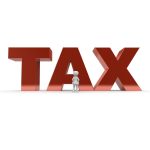Frequently Asked Questions
It is not a legal requirement for an accountant or bookkeeper to file any of your statutory documents but when considering doing it yourself we suggest you consider the following:
- Recognise your strengths and focus on what makes you money
- Understand that the limitations to your knowledge will cost you money in both the lost value of your time and in actual tax paid
- Remember that accountancy fees are tax deductible.
A lot simpler than you might expect. All you need to do is tell your accountant that you are switching to us and we will do the rest. We will contact them to obtain all necessary information and ensure that the handover is seamless.
Take a look at our Why Choose Us page for plenty of reasons!
We can take on clients anywhere in the country. We can stay in close contact with you by making the use of the latest cloud accounting, emails, phone calls and online meetings, so this is no problem.
If you already have an accountant, we will contact them to ask them to confirm that there is no objection to us acting for you and for any relevant handover information. We will then send you our letter of engagement which sets out the expectations and requirements between you and us.
We will also send you a form to authorise us to talk to HMRC on your behalf.
You will also be asked to provide details to allow us to carry out background checks to meet with mandatory money laundering regulations.
We understand that you might prefer to concentrate on the running of your business during normal business hours so we can be flexible with when you can contact us. We can also be available for meetings outside normal working hours.
We are happy to structure our fees in whichever way suits you or your business.
We will quote and agree a fixed fee with you in advance of any work we do. If you would like to spread the cost of our fees to assist your cash flow, we can structure them on a monthly or quarterly basis. Alternatively, you can pay us once we have carried out the work for you.
Registration for VAT is compulsory if your annual turnover exceeds £85,000 or you expect your turnover to be higher than that amount in the next 30 days.
If your turnover is below the threshold for registration you can voluntarily register for VAT. This can be beneficial as you will be able to claim back the VAT on your purchases. You should consider whether your customers/clients are likely to be VAT registered as voluntarily registering for VAT could make you more expensive than your non-VAT registered competitors.
You may not register for VAT if you only sell goods or services that are exempt from VAT.
This will depend on your individual circumstances.
It can be more tax efficient to trade under a Limited Company although HMRC have recently introduced new tax measures to make it less attractive.
Trading under a Limited Company means that there are more legal obligations which have to be met which results in additional accountancy costs.
Trading under a Limited Company offers limited liability to the directors which might be beneficial.
If you would like more advice on whether you should set yourself up as a sole trader or a Limited Company or whether it is worth incorporating your business, please contact us.
Yes. For Limited Companies it is a legal requirement to have a business bank account. For sole traders it is optional but we would always recommend separating your business and personal expenditure.
Cloud accounting involves using an accounting system that is accessed over the Internet. This means that you (or we) can access your accounting data from anywhere, at any time.
Traditionally you would have had to send us a copy of your accounting data for us to look at, but using cloud accounting we can look at your information in real time. This means that we can provide you with management reports so that you can make key decisions about your business using the most up to date information.
If you run a Limited Company, it will always need to complete an annual tax return.
Some of the more common circumstances for an individual needing to complete a tax return are:
- you were self-employed (this includes being a partner in a partnership)
- you made profits from selling capital items such as shares, a second home or other chargeable assets.
- you received £10,000 or more from savings and investments
- you received more than £10,000 or more from property before the deduction of expenses or at least £2,500 after the deduction of expenses.
- you or your partner claimed child benefit and your income is over £50,000.
- you have income from abroad that you need to pay tax on
- you lived abroad and need to pay tax on UK income
- your income was over £100,000
Companies – when you register a company with Companies House, HMRC will automatically be notified that the company has been incorporated. The company must then tell HMRC that it has started to trade within 3 months of doing so.
Individuals/partnerships – you need to register for self-assessment before 5 October following the end of the tax year, eg. for the 2020/21 tax year which ends on 5 April 2021 you need to notify HMRC by 5 October 2021.
Companies – 12 months after the end of the accounting period it covers, e.g. if the company’s year end is 31 March 2020 the corporate tax return will need to be filed to HMRC by 31 March 2021.
Individuals/partnerships/trusts – 31 January following the end of the tax year if filing online or 31 October if filing a paper return. For example, for the 2019/20 tax year which ended on 5 April 2020 a paper tax return would need to be filed by 31 October 2020 and an electronic return would need to be filed by 31 January 2021.
Companies – 9 months and 1 day after the end of the accounting period, eg. for a 31 March 2020 year end the corporation tax would be due by 1 January 2021.
Individuals – 31 January following the end of the tax year, eg. for the 2019/20 tax year which ended on 5 April 2020 the tax will be due by 31 January 2021. Depending on your circumstances you might also need to make payments on account by 31 January and 31 July. These payments are payments in advance of the tax liability for the following tax year.





